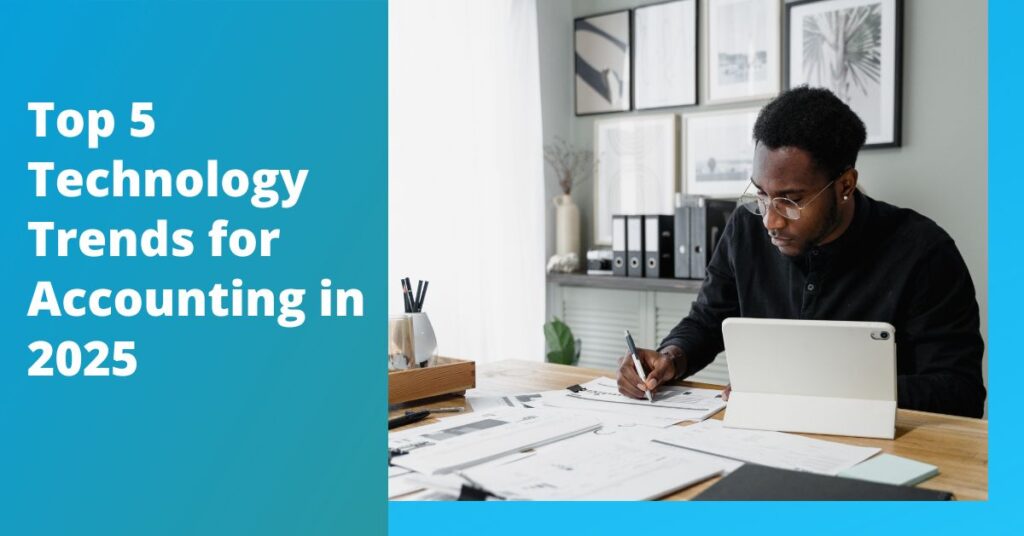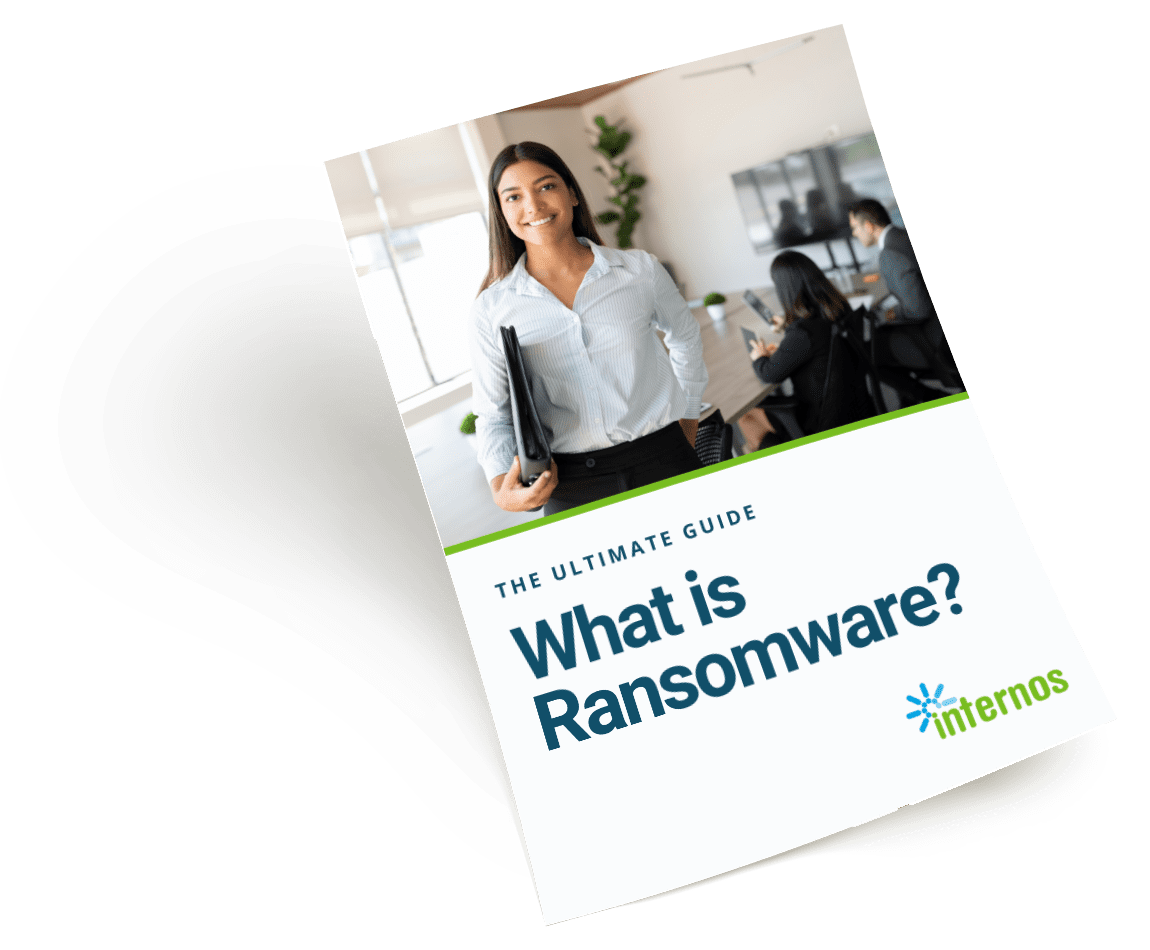
The world of accounting is evolving at lightning speed —and it’s all thanks to technology. From cloud computing to automation tools and AI-driven insights, today’s firms are embracing innovative technology trends for accounting that boost productivity, streamline workflows and enable real-time strategic planning.
Gone are the days of manual data entry and stacks of spreadsheets. It’s time to embrace the future.
Here are the top five technology trends for accounting to watch for in 2025:
1. Cloud-Based Computing Is the New Standard
In today’s flexible work environment, the ability to access data anytime, anywhere is a necessity. That’s why cloud-based accounting platforms have become the gold standard for firms. These solutions empower teams to stay connected and productive, whether they’re in the office, working from home or meeting clients on the go.
Unlike traditional desktop software that requires manual updates and can only be accessed on specific devices, cloud accounting platforms offer:
- Anywhere-access: Accountants and business owners can access their financial data from any internet-connected device, whether it’s a laptop, tablet or smartphone.
- Real-time insights: Instead of waiting for end-of-month reports, cloud tools provide up-to-the-minute financial snapshots, making it easier to spot trends, manage cash flow and respond to challenges as they arise.
- Secure data sharing: Built-in security protocols and role-based access controls ensure sensitive information is protected while still allowing for easy collaboration with clients and team members.
- Automatic updates: Say goodbye to installing new software versions. Cloud platforms are continuously updated in the background, providing access to the latest features without downtime.
- Centralized workflows: Many cloud platforms combine communication tools, document storage, task management and reporting in one place. This makes it easier to manage everything from client onboarding to tax preparation.
The shift to cloud-based is a strategic decision that every accounting firm should be considering if they haven’t already. The clock is ticking: Cloud platforms are expected to continue to grow in 2025, making it crucial for late adopters to act now or risk falling behind the competition.
Firms that embrace the cloud position themselves for long-term success, with the agility to scale operations, enhance client service and adapt to industry changes faster than those tied to outdated systems.
2. Artificial Intelligence Is a Strategic Ally
Despite the fearmongering headlines, artificial intelligence isn’t here to steal jobs. On the contrary, it’s here to supercharge them. In the accounting world, AI is quickly becoming one of the most valuable tools in a firm’s tech stack, offering a level of speed and precision that was once unthinkable.
Accountants are now using AI to:
- Analyze complex datasets in seconds.
- Flag anomalies or potential fraud in financial reports.
- Summarize lengthy documents or client conversations.
- Transcribe phone calls and meetings instantly.
- Generate real-time insights tailored to specific client needs.
Think of AI as your digital co-pilot. It empowers professionals to make smarter decisions faster. With AI handling the heavy lifting on data analysis, accountants can focus more on high-value tasks like client strategy, forecasting and consulting.
Still, it’s natural for some to feel hesitant. New technology always comes with a learning curve, and change can be uncomfortable. But the firms that thrive in 2025 and beyond will be the ones that embrace AI as an opportunity and not a threat. Because when used wisely, AI doesn’t replace people. It amplifies their strengths.
It’s time to lean in. The future of accounting isn’t about choosing between tech and people. It’s about using both to deliver better results, faster service and deeper insight than ever before.
3. Automation Is Transforming Workflows
The rise of automation is reshaping how accounting firms operate. With the right tools, firms can automate routine tasks that once took hours, freeing up valuable time for more strategic work. From data entry to report generation, automation tools are streamlining workflows, reducing human error and increasing overall efficiency.
Many repetitive and tedious tasks can now be handled by automation, making workflows faster and more accurate than ever before.
The benefits of leveraging automation include:
- Faster turnaround times on client deliverables.
- Reduced manual labor and human error.
- Increased scalability, allowing firms to handle growing workloads without adding more staff.
- Lower operational costs, translating into higher profitability for firms.
As more firms move toward full automation, the difference between those who adopt it early and those who don’t will become increasingly evident. Automation is the perfect way for firms to stay ahead of the competition in 2025.
4. Unlocking the Power of Big Data
With its vast potential, big data is transforming how businesses understand their clients, predict financial trends and make informed decisions. It is an important tool that can transform the way accounting firms manage decision making.
But what exactly sets big data apart? Unlike traditional data, which is often limited in scope, big data pulls information from an incredibly broad spectrum: historical records, social media, cloud databases, market trends and even environmental data. This wealth of information provides a fuller, more accurate picture of a firm’s financial landscape.
So, how are accounting firms capitalizing on this trend?
- Understanding clients on a deeper level: Big data gives firms the ability to analyze vast amounts of client-specific data, providing insights into behaviors, preferences and financial needs. With these insights, firms can deliver more personalized and strategic solutions.
- Predicting financial outcomes: By analyzing patterns and trends, big data allows firms to predict future cash flow, business growth and market shifts. This predictive power empowers accountants to offer more proactive advice and make decisions with greater confidence.
- Real-time insights for faster decisions: Big data allows firms to make informed decisions instantly. With real-time reporting, accounting professionals can adjust strategies quickly in response to market changes, ensuring they’re always one step ahead.
- Identifying fraud before it happens: Big data also plays a crucial role in fraud detection. By analyzing an extensive range of data points, such as transaction histories, employee activity and even external factors like economic conditions, firms can spot irregularities and potential fraud patterns early on.
As data continues to grow exponentially in 2025, the firms that can harness its power will be better positioned to stay competitive and offer unmatched value to their clients.
5. Cybersecurity Is More Important Than Ever
As the accounting industry continues to embrace technology, cybersecurity has become an indispensable element of every firm’s strategy. Financial data is a prime target for cybercriminals, and accounting firms are increasingly at risk of sophisticated attacks. In 2025, ensuring the protection of sensitive financial information is critical for maintaining client trust and regulatory compliance.
Here’s how accounting firms are strengthening their cybersecurity defenses:
- Data encryption: Protecting client data is a top priority for modern accounting firms. Encrypting data both in transit and at rest ensures that even if hackers manage to access it, they cannot read or manipulate it without the proper decryption keys. This level of protection is vital for maintaining client confidentiality and preventing fraud.
- Multi-factor authentication (MFA): As passwords alone are no longer enough to secure sensitive data, MFA has become a must-have for accounting firms. This added layer of security requires users to provide more than one verification method, such as a password and a biometric scan or one-time code, making it significantly harder for unauthorized individuals to access accounts.
- Employee awareness and training: Many cyberattacks begin with human error, such as falling for phishing scams or using weak passwords. To mitigate these risks, accounting firms are prioritizing ongoing cybersecurity training for employees, ensuring that everyone from partners to staff members can recognize potential threats and adhere to security best practices.
- Cloud security: With more firms relying on cloud-based accounting solutions, securing cloud infrastructure has become a top priority. Leading cloud service providers are investing heavily in robust security measures such as end-to-end encryption, secure access controls and regular audits to safeguard financial data from cyber threats.
As firms handle increasing amounts of sensitive financial data, the consequences of a breach are too severe to ignore. Data loss, reputational damage and regulatory fines can cripple a firm’s operations. In 2025, firms that invest in comprehensive cybersecurity strategies will not only protect their clients but also enhance their credibility in a digital-first world.
It’s Time to Embrace Technology Trends for Accounting
At Internos Group, we understand the importance of staying ahead of the curve. By integrating technology trends for accounting, we empower accounting firms to work smarter, more efficiently and more securely.
Our expertise in providing tailored technology solutions ensures that your firm is ready to meet the challenges of 2025 and beyond, driving growth and success in a rapidly changing landscape.
Ready to take your accounting firm to the next level with the latest accounting technology? Contact us or book a meeting today to learn how Internos Group can help you stay ahead of the curve and optimize your operations for success in 2025 and beyond. We’re here to guide you every step of the way!

